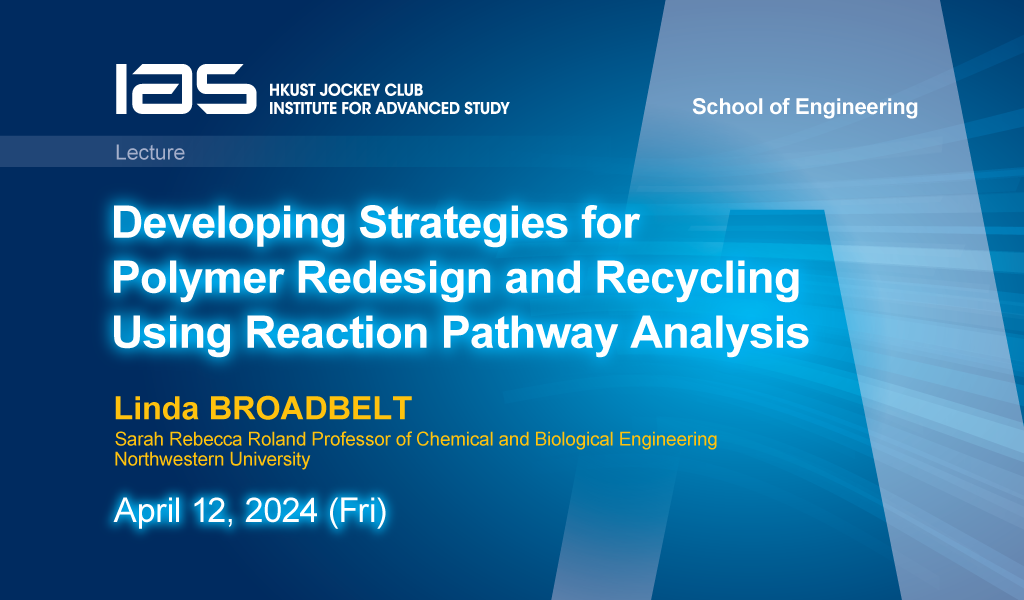Developing Strategies for Polymer Redesign and Recycling Using Reaction Pathway Analysis
Abstract
The current lack of sustainability and the limited portfolio of recycling processes for synthetic polymers have posed serious threats to the environment. Using reaction pathway analysis, the speaker and her research group are pursuing strategies for redesign and recycling of polymers for sustainability. Pyrolysis is a promising method for resource recovery from plastic waste, which thermally converts polymers into valuable chemical feedstocks and monomer. A greater understanding of the underlying reaction network is needed to provide further insight into polymer pyrolysis. To handle the complexity of mechanistic modeling, they have developed both continuum and kinetic Monte Carlo (kMC) models. Alternatively, redesign efforts focusing on polymers can lead to sustainable solutions for the plastics waste problem. One pathway to success is to identify bioprivileged molecules, biology-derived chemical intermediates, and molecules emanating from them leading to recyclable polymers. They have developed a framework for molecule discovery and reaction pathway design that is automated and flexible and can be used to screen for bioprivileged candidates and target molecules. The application to discovery of known and novel monomers for poly (hydroxyurethanes) that are derived from biobased molecules and lead to recyclable materials will be discussed, and computational methods to evaluate the recyclability of different polymers will be outlined.
About the Speaker
Prof. Linda BROADBELT received her BS in Chemical Engineering from Ohio State University in 1989 and her PhD in Chemical Engineering from the University of Delaware in 1994. She is currently the Sarah Rebecca Roland Professor in the Department of Chemical and Biological Engineering and the Senior Associate Dean for Research of the McCormick School of Engineering and Applied Science at Northwestern University. She was Chair of the Department of Chemical and Biological Engineering during 2009-2017. She was also appointed the Donald and June Brewer Junior Professor in 1994-1996. She has completed the short course, Business for Scientists and Engineers, through the Kellogg Graduate School of Management at Northwestern University.
Prof. Broadbelt’s research and teaching interests are in the areas of multiscale modeling, complex kinetics modeling, environmental catalysis, novel biochemical pathways, and polymerization/depolymerization kinetics. She served as the Past Chair, Chair, First Vice Chair and Second Vice Chair of the Catalysis and Reaction Engineering Division of American Institute of Chemical Engineers (AIChE), and also previously served on the Executive Board of the National Program Committee of AIChE. She is currently an Associate Editor for Industrial & Engineering Chemistry Research.
Prof. Broadbelt’s honors include being selected as the winner of the R. H. Wilhelm Award in Chemical Reaction Engineering from AIChE, the E. V. Murphree Award in Industrial Chemistry and Engineering from the American Chemical Society, the Dorothy Ann and Clarence Ver Steeg Award, the CAREER Award from the US National Science Foundation, and the AIChE Women’s Initiative Committee Mentorship Excellence Award. She is also a Fellow of the American Association for the Advancement of Science, a Fellow of AIChE, and a Fulbright Distinguished Scholar, to name a few. In 2019, she was elected to the US National Academy of Engineering.
For Attendees' Attention
Seating is on a first come, first served basis.



